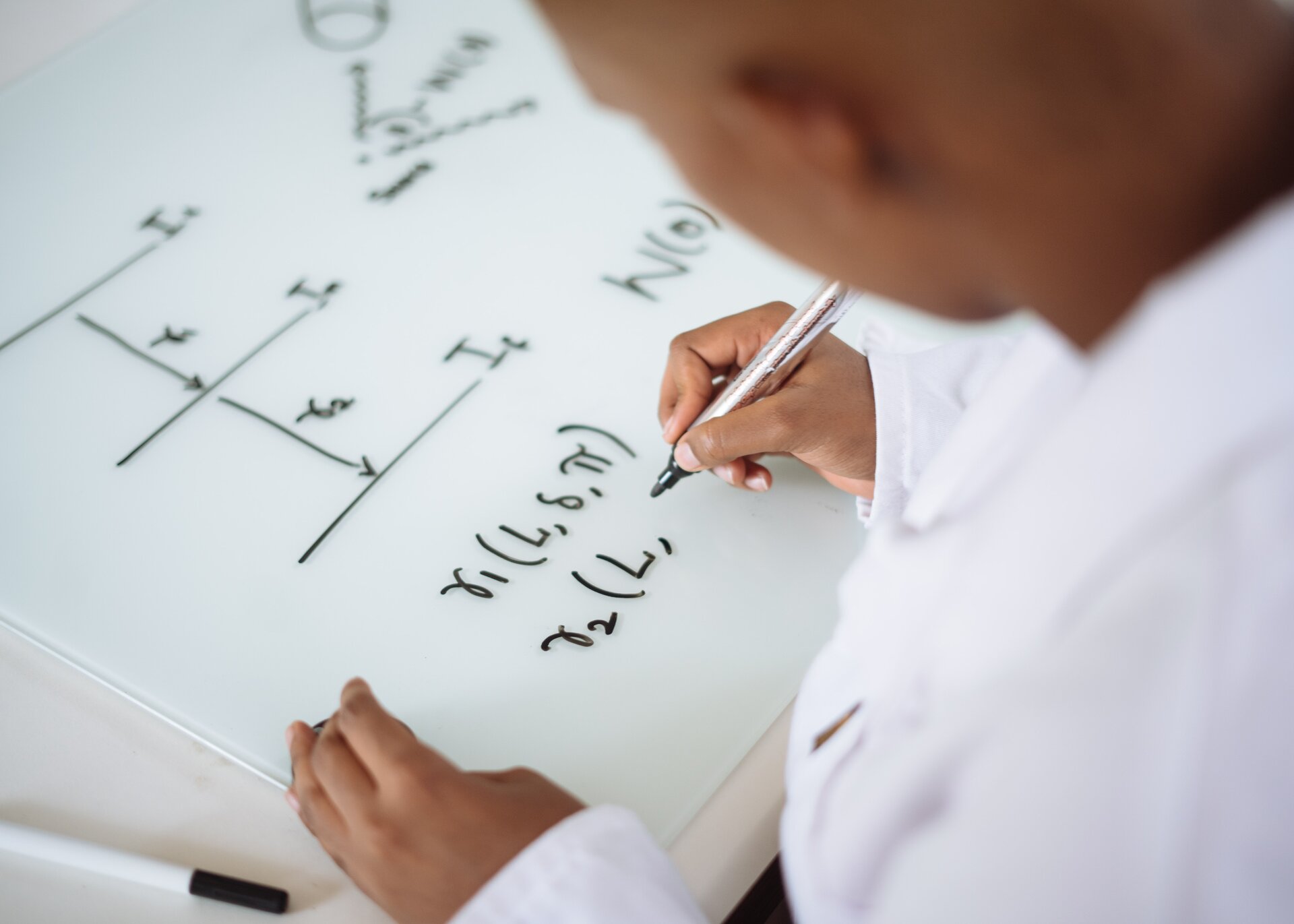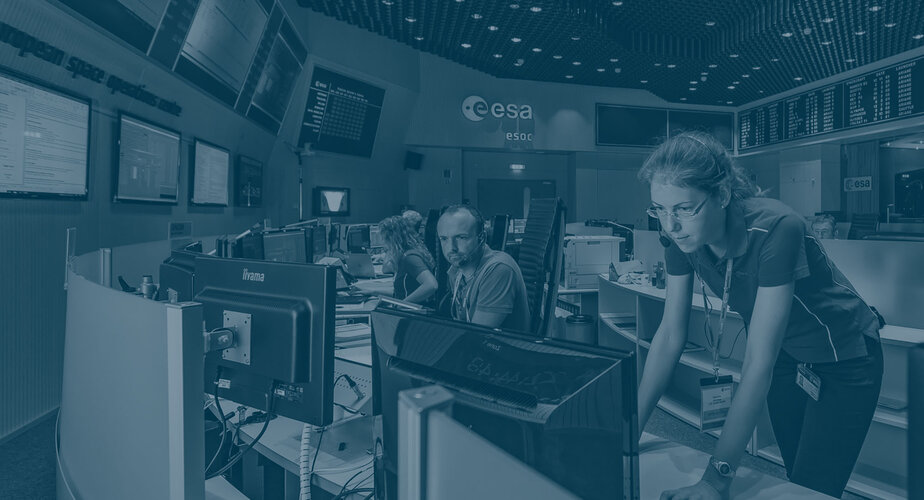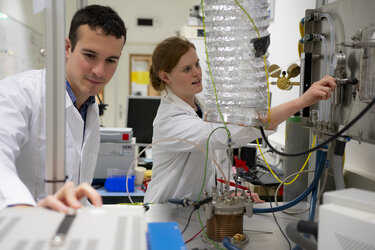ESA Co-funded Research
ESA offers to co-fund novel, space-related PhD and post-doctoral research activities. Part of our efforts to strengthen the innovation capacity of the European space sector, these co-funded research activities increase interaction between ESA, European universities, research centres and industry.
ESA is looking for research projects with the potential to bring novel capabilities to space missions and applications. Novelty is the differentiator. The monthly updated list of ongoing co-funded research activities here provides information on the type and topics for such co-funded research activities. All ongoing research activities are also searchable here.
Sponsorship may be provided in a number of ways:
- Co-funding: ESA co-funds with up to 50% and up to €90 000 research for a doctoral degree (typically three years) or post-doctoral investigation (typically two years)
- Access to laboratories: researchers are offered the option to use ESA laboratories and facilities, in agreement with the ESA-co-supervisors
- Technical support: participants gain access to ESA experts with whom to discuss concepts and assess their potential for space applications
- Participants are highly encouraged to include industrial partners, ideally with own contributions to the research, for further cooperation and to build 'innovation networks'

Who can apply?
Researchers (PhD or post-doc research projects) registered or preparing a research proposal with a university located in one of ESA’s Member States or Cooperating States.
How to apply?
Innovative doctoral or post-doctoral research proposals need to be submitted to the Open Discovery Channel at ESA’s Open Space Innovation Platform (OSIP). This is where all novel ideas for innovation with ESA are submitted.
The first step is to submit your idea, which you can edit and improve based on feedback on the site until you are happy to be evaluated. Idea evaluations take place every month assessing its novelty. If retained and selected, you will be invited to mature your idea into a research proposal via a form also on OSIP. You can apply any time of the year, but ideas cannot be re-submitted after an unsuccessful evaluation. Research proposal evaluations also take place each month.
Explore the latest open innovative ideas submitted to the platform here.
When does the research activity start?
For selected co-funded research activities, contracts will need to be signed between ESA and the host university. Depending on the processing time at the host university, up to six months can be necessary before the actual research activity can start. The fastest duration for the two-stage process from idea submission to start of activity so far has been 113 days.
More information
Take a look at the current and past research activities, which all started as an idea on OSIP: https://activities.esa.int. The outcome of all finished co-sponsored research activities are available at https://nebula.esa.int.
Explore the Open Discovery Channel: http://bit.do/OSIP-discovery. If you have any questions, you can submit them here.
Visiting researchers
Another channel for conducting your research with ESA’s support is by joining us as a visiting researcher. If you are a researcher at PhD level or above with an ongoing research project and you think that it would benefit from access to ESA labs, equipment, facilities or ESA expertise for your research project, we are interested in helping you. Please submit your project here and the team/lab will check with you what is feasible. Take a look at the ESA labs and teams currently participating here and read through their current research interests. Further information on all ESA labs is available here.
If your project proposal is accepted (depending on the interest of the ESA lab and their availability), you will have access to the following resources:
- Access to ESA laboratories and equipment
- Exchanges and interaction with ESA engineers and scientists
- Allowance of up to € 1000 per month for visiting researchers’ stay and € 500 for your travel
The visiting researcher position has no fixed stay and can last from a few weeks up to one year, depending on the research requirements and the availability of the lab.
Who can apply?
To be eligible to apply, you must meet the criteria below:
- Active European researcher at PhD, post-doc or higher level
- Hold an ongoing contract with an ongoing funded research project
- Employed by an organisation in one of ESA’s Member States or Cooperating States.
- Able to perform research autonomously, with experience and understanding of the typical requirements and rules of laboratory work
How to apply?
- Register on ESA’s Open Space Innovation Platform
- Indicate the team or lab you wish to join as a visiting researcher when filling out your research project Idea Form
- Members of the team/lab will reach out to you on the platform to determine the interest, feasibility and suitability of your project and help you to shape it further
- ESA lab managers will then decide if your idea can progress to be reviewed by ESA
- ESA reviews qualified ideas, typically within one month
You will be able to view the status of your proposal throughout the application process.
More information
Find out more about visiting researchers at ESA. If you have any questions, you can submit them here.
Looking for more learning and hands-on opportunities?
ESA Academy is open to university students from undergraduate to PhD level coming from ESA Member States, Associate Members or Canada as a Cooperating State.
ESA Academy joins forces with European universities, space institutes, and national space agencies to offer exceptional learning and hands-on opportunities, in a vast portfolio of different programmes. ESA Academy is designed to complement academic education. Its objective is to enhance students’ educational experience and help them develop both practical and theoretical know-how and expertise in various disciplines, ranging from space sciences to engineering, space medicine, spacecraft operations, project and risk management, product and quality assurance, standardisation and much more.
Learn more about ESA Academy.
Find your path at ESA
ESA offers a number of entry-level programmes targeting students (Master or PhD), recent graduates and young professionals, alongside its vacancies for experienced professionals. One of them could be your path to space! Quickly find out which programme could be the best fit for you by following the pathways at ESA on our entry-level flowchart.















 Germany
Germany
 Austria
Austria
 Belgium
Belgium
 Denmark
Denmark
 Spain
Spain
 Estonia
Estonia
 Finland
Finland
 France
France
 Greece
Greece
 Hungary
Hungary
 Ireland
Ireland
 Italy
Italy
 Luxembourg
Luxembourg
 Norway
Norway
 The Netherlands
The Netherlands
 Poland
Poland
 Portugal
Portugal
 Czechia
Czechia
 Romania
Romania
 United Kingdom
United Kingdom
 Slovenia
Slovenia
 Sweden
Sweden
 Switzerland
Switzerland
































